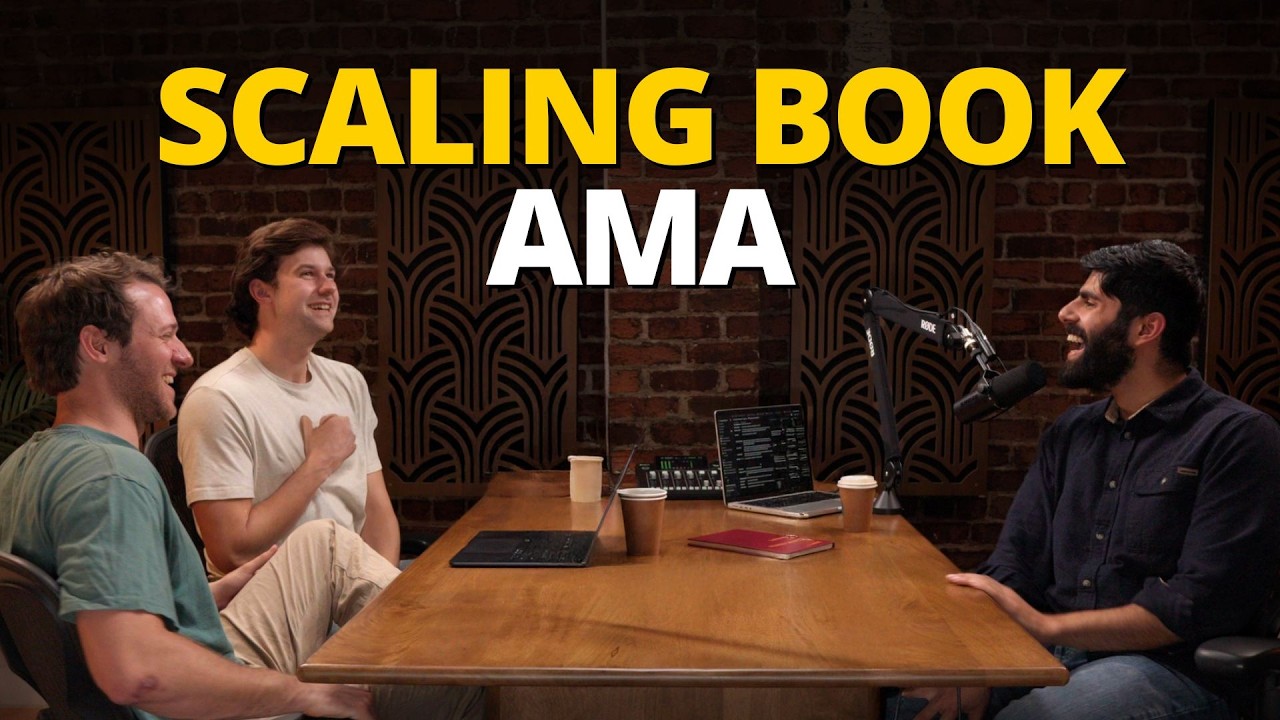In this AMA episode, AI researchers Trenton Bricken and Sholto Douglas discuss the host’s new book, “The Scaling Era,” which explores the implications of advanced AI through interviews with experts and emphasizes the importance of understanding AI’s impact on society. The conversation also covers career advice for young professionals in the evolving job landscape shaped by AI, highlighting the need for deep technical knowledge and adaptability.
In this Ask Me Anything (AMA) episode, the host is joined by AI researchers Trenton Bricken and Sholto Douglas from Anthropic. The discussion kicks off with the host promoting his newly launched book, “The Scaling Era,” which compiles insights from interviews with AI lab CEOs, researchers, and scholars across various fields. The book addresses critical questions about the nature of intelligence, the implications of having billions of extra workers, and the economics of advanced AI. The host emphasizes that the book is a multidisciplinary exploration of these pressing issues, making it relevant for a broad audience, including those unfamiliar with AI.
The conversation then shifts to the accessibility and structure of the book, highlighting its organization by topics and interviews. The host mentions that the book includes previously unpublished interviews, providing readers with diverse perspectives on AI and its implications. The guests appreciate the book’s design, which includes diagrams and side captions that clarify complex concepts, making it easier for readers to grasp the material. This structure aims to help readers, including the host’s parents, understand the intricacies of AI and its impact on society.
As the AMA progresses, the guests tackle questions about the limitations of AI models, particularly their inability to make connections across different topics despite having vast amounts of information. They discuss the combinatorial attention challenge and the need for reinforcement learning (RL) to enable models to make novel discoveries. The conversation touches on the differences between human cognition and AI capabilities, with the guests suggesting that current AI models may lack the necessary memory scaffolding to draw meaningful connections between disparate pieces of knowledge.
The discussion also delves into career advice for young individuals entering the workforce, particularly in light of the rapid advancements in AI. The guests suggest that students should focus on gaining deep technical knowledge and increasing their leverage in their respective fields. They emphasize the importance of being adaptable and open to trying new things, as the future job landscape will likely be shaped by AI technologies. The conversation highlights the unpredictability of career paths and the value of being close to the frontier of knowledge in one’s field.
Finally, the episode concludes with reflections on the podcasting journey and the importance of distribution in growing an audience. The host shares insights on how he selects guests for the podcast, emphasizing the significance of genuine interest and the potential for mutual learning. The guests discuss the challenges of hiring and finding talent, particularly in the context of AI research. Overall, the AMA provides a rich exploration of AI, career advice, and the evolving landscape of media and knowledge sharing.
